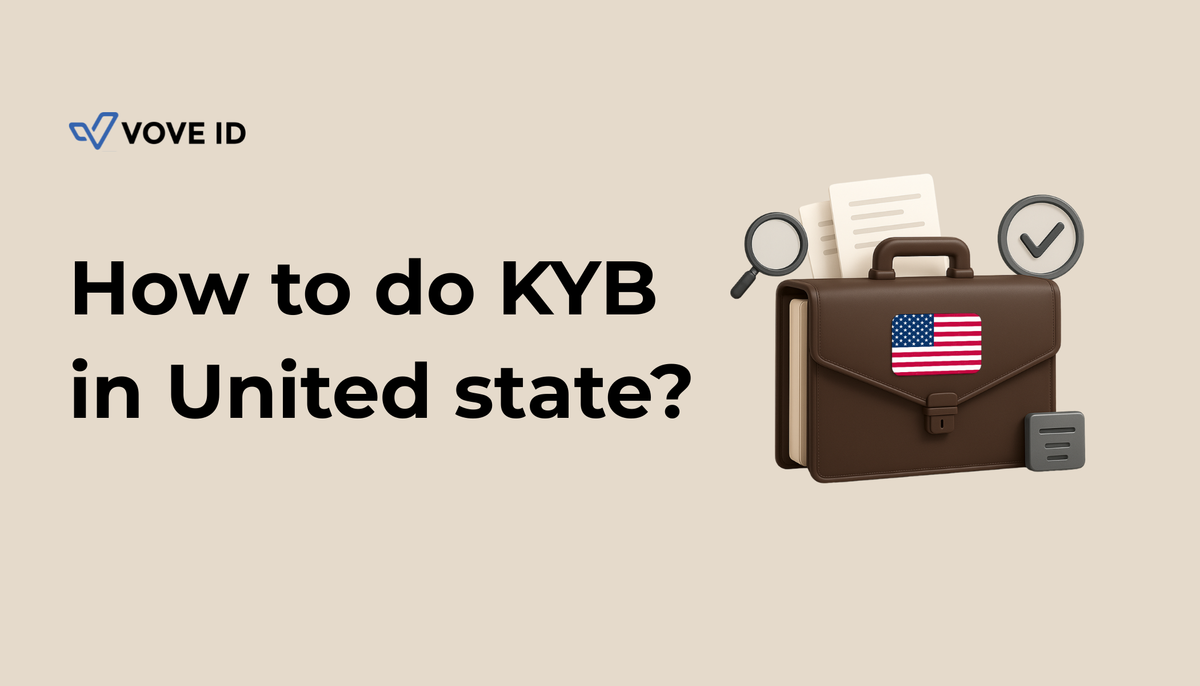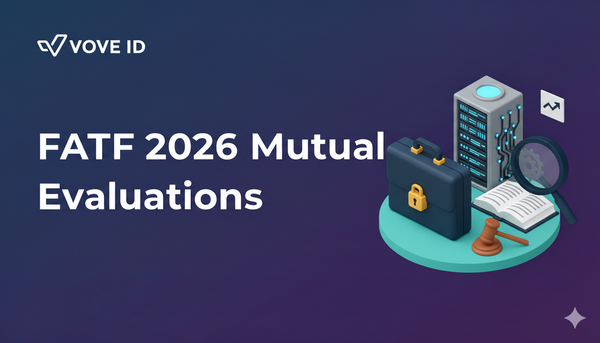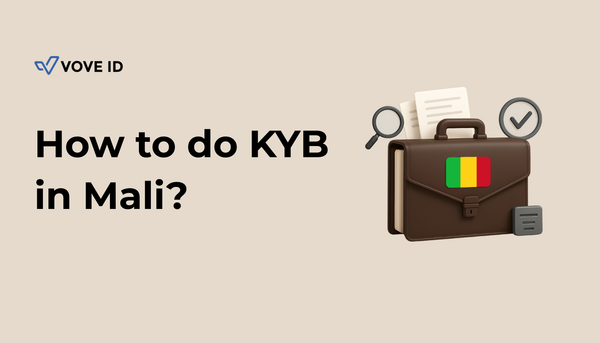KYB in the USA: A Comprehensive Guide to Compliance
Master KYB in the USA with this guide to BSA, PATRIOT Act, CDD Rule, and CTA compliance. Streamline UBO checks and AML compliance with VOVE ID’s solutions.

Why KYB in the USA Is Urgent Now
As cybercrime surges and U.S. regulators crack down, KYB in the USA is critical for verifying business partners. Know Your Business (KYB) ensures companies confirm corporate clients’ identity, protecting against fraud, money laundering, and terrorist financing. In 2024, regulators imposed over $10 billion in fines for AML/KYC non-compliance, underscoring the stakes. Non-compliance also risks reputational damage, lost partnerships, and exclusion from opportunities. More than 32 million entities were initially impacted by CTA reporting, highlighting compliance’s vast scope. This guide details KYB requirements, steps, and strategies to streamline compliance.
What Is KYB and Why Is It Required?
KYB verifies a business’s identity, ownership, and risk profile to ensure legitimacy. It prevents financial crimes like money laundering, safeguarding businesses and the U.S. economy. KYB is governed by anti-money laundering (AML) laws, including the Bank Secrecy Act (BSA), USA PATRIOT Act, and FinCEN’s Customer Due Diligence (CDD) Rule.
The Corporate Transparency Act (CTA), effective January 2024, requires foreign entities registered in the U.S. to report beneficial ownership information (BOI) to FinCEN, targeting shell companies. Domestic entities are exempt as of March 2025. Non-compliance invites penalties or eroded trust. KYB in the USA is vital for compliance and security.
Who Needs to Comply with KYB in the USA?
KYB applies to “covered financial institutions” under the BSA, including:
- Banks and credit unions
- Fintech and money service businesses (MSBs)
- Securities firms and broker-dealers
- Insurance providers
- Cryptocurrency exchanges
The CTA mandates BOI reporting for foreign entities by April 25, 2025, for those registered before March 26, 2025, or within 30 days for new registrations. Non-regulated firms, like small businesses or those in global trade, often adopt KYB voluntarily to reduce fraud and meet partner expectations, especially when collaborating with regulated entities.
With the compliance scope defined, let’s outline the steps for KYB in the USA.
Key KYB Requirements in the USA
To meet U.S. KYB standards, businesses must:
- Collect: Gather the company’s legal name, tax ID (EIN), address, and type from state registries or SEC filings.
- Confirm: Verify legitimacy using state databases, commercial providers, or eKYC platforms.
- Verify: Identify individuals owning 25% or more, including names, addresses, and ID numbers, per the CDD Rule and CTA for foreign entities.
- Assess: Evaluate risks based on industry or location, applying Enhanced Due Diligence (EDD) for high-risk cases like politically exposed persons (PEPs). This is critical in the U.S. due to intense regulatory oversight and evolving compliance demands, aligning with the risk-based approach to KYB and customer due diligence (CDD).
- Monitor: Track transactions for suspicious activity, updating data as risks like new sanctions lists emerge.
- Store: Keep KYB records for five years after a relationship ends, per BSA rules.
Digital tools, like eKYC platforms, automate these steps for efficiency.
Challenges of KYB Compliance in the USA (and How to Overcome Them)
KYB compliance presents challenges:
- Regulatory Complexity: With regulatory changes rolling out rapidly, keeping pace with new laws like the CTA and BSA updates adds complexity.
- Data Fragmentation: Inconsistent data across state or global registries complicates verification.
- Cost and Time: Manual checks burden smaller firms with high costs and delays.
- Client Onboarding: Slow processes frustrate clients, risking drop-offs.
Automated KYB platforms and continuous staff training on regulations and tools streamline processes and ensure accuracy.
Let’s explore how to streamline compliance with the right tools and strategies.
Streamlining KYB Compliance in the USA: Best Practices
Optimize KYB with these strategies:
- Leverage Automation: Use eKYC and KYB software for real-time state registry and sanctions checks.
- Screen for Risks: Check PEPs, sanctions, and adverse media for red flags.
- Train Staff Continuously: Keep teams updated on regulations to identify fraud, like inconsistent UBO data.
- Collaborate with Partners: Work with banks or KYB platforms for reliable data.
- Stay Informed: Monitor FinCEN and CTA updates through 2025.
Partnering with VOVE ID delivers secure, U.S.-tailored KYB solutions.
KYB Compliance Checklist for U.S. Businesses in 2025
- Verify company registration and details
- Identify and verify UBOs (25% ownership threshold)
- Conduct risk assessments for all corporate clients
- Apply Enhanced Due Diligence (EDD) for high-risk clients
- Monitor transactions for suspicious activity
- Securely store KYB records for at least five years
Infographic Suggestion: Create a vertical timeline checklist with color-coded icons (blue magnifying glass for “Verify,” green checkmark for “Identify,” red eye for “Monitor,” gray lock for “Store”) in a clean font like Montserrat. Align each icon to a step for scannability. Caption: “U.S. KYB Compliance Checklist 2025.” Place here for visual impact.
Wrapping Up
KYB in the USA protects businesses and ensures compliance with BSA, PATRIOT Act, CDD Rule, and CTA regulations. Digital tools and proactive strategies streamline the process. Is your KYB process fully automated and CTA-ready? Book a free demo now with VOVE ID at our contact page to ensure compliance and simplify operations!




